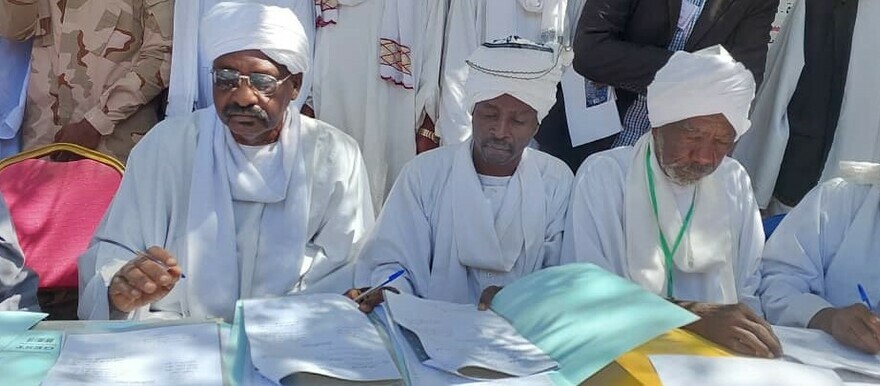The Artala area of the Mukjar locality in Sudan’s Central Darfur State has witnessed tribal tensions between the Salamat and Bani Halba tribes over the past week.
Both tribes mobilized heavily armed forces, prompting the Rapid Support Forces (RSF) stationed around the Mukjar locality to intervene from the three directions of Zalingei, Garsila, and Um Dukhun to defuse the crisis.
Ahmed Minnawi, a member of the State Security Committee, said that ongoing efforts to contain the crisis have succeeded in achieving a degree of calm among the armed tribal groups.
“A ceasefire agreement between the two tribes has been signed and a joint committee comprising various tribes from the region has been formed to assist in stopping the conflict,” he said.
Minnawi revealed that the ceasefire document includes several provisions, such as halting hostilities, combating negative phenomena, and stopping media and propaganda escalation between the parties.
“The document sets a three-week timeframe after which a reconciliation agreement between the tribes will be signed,” he said. “Additionally, security forces will be deployed to prevent the renewal of conflicts.”
Minnawi, who is also a member of the mediation committee, emphasized the need for tribal unity to address the region’s needs and requirements. He said the ceasefire agreement includes measures to control irregularities, refrain from harboring criminals, and strictly enforce the document’s terms. He highlighted the importance of curbing hate speech and racism propagated through social media, which fuels discord among the local communities.
Abdullah Hussein, the chief of the Salamat tribe, said the two tribes are one people and should coexist peacefully.
“The Salamat and Bani Halba tribes are a single entity sharing land and resources, and their intermingling necessitates a return to the traditions of peaceful coexistence,” he stated.
Chief Hussein called for the eradication of crime, theft, and unrest to prevent recurring conflicts. He affirmed his people’s commitment to peace, recognizing that war has no benefits.
“It is time to end the conflict and bloodshed permanently,” he added.
The chief thanked the neutral tribal components and urged them to intensify efforts to enforce peace between the tribes, given their ability to bring the conflicting parties to the table.
Similarly, Abdullah Namma, a leader of the Bani Halba tribe, remarked that the Salamat tribe is closely related to the Bani Halba tribe and such relationships should not be severed over transient disputes or the actions of lawbreakers. He expressed gratitude to the mediation team for addressing the crisis.
Namma added that there have been numerous attempts in the past to resolve the recurring issue, but they have failed to create lasting solutions.
“I hope that this initiative will finally resolve the problem permanently and call for more effective mechanisms to handle inter-tribal disputes,” he stated.
The Bani Halba leader suggested that conflicts should be managed within families rather than being generalized to the entire tribe to prevent dragging the whole tribe into minor or major crises that arise in the community.




